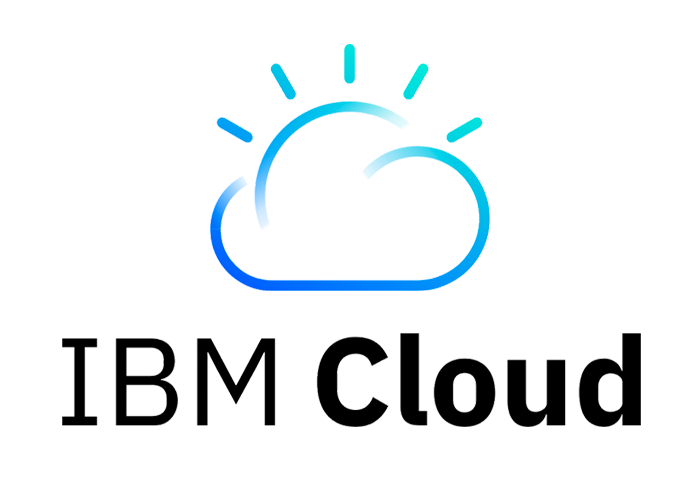The concept of cloud computing has changed the way enterprises store and access data. The idea of local databases seems to be a thing of the past as every enterprise is getting more and more dependent on the cloud. With all the data on the cloud, it has become easier for enterprises to deal with data and perform analytics. Tools provided by various cloud computing vendors make handling and analyzing data efficient and simple. So, it’s no surprise that cloud computing vendors today rake in revenue in the billions. Here are the top five cloud computing vendors and how they have managed to make a mark while earning considerable revenue and profit by harnessing the power of the cloud.
1) Microsoft cloud

Microsoft’s cloud leads the market. The tech giant’s tow big cloud offerings, Office 365 and Azure, have not just helped it become the top cloud computing vendor in the market but also widen the lead from its main competitor, Amazon Web Services. Microsoft brought in $8.6 billion in revenue in the quarter ended Sept. 30, a 24 percent growth rate compared to the same quarter last year. With consistent double-digit growth rates over the last four quarters, Microsoft is aiming to stay on the top.
Microsoft plans on continuing its focus on its ever-expanding cloud business. Microsoft recently announced its partnership with the financial messaging company, Swift. Around 11,000 finance companies and banks perform message-based money transfer over the Swift network. Microsoft plans to develop a platform with Swift that will hone Swift’s unique network and Microsoft cloud’s security and intelligence. Microsoft and Volkswagen recently revealed a partnership that’ll help the carmaker in producing smart vehicles using Microsoft’s cloud. Microsoft is also working on cloud and blockchain-based identity systems to store users’ identity and allowing them with the ability to control access to their data.
With Microsoft’s trajectory, it’s safe to say that it’s a tough competitor to beat.
2) Amazon Web Services
Amazon has long dominated the cloud market before Microsoft’s recent victory leap. AWS reported revenue of $6.1 billion in the three months ended June 30, which marks a growth of 49 percent as compared to the previous year’s Q2 revenue of $4.1 billion. AWS may have lost its lead in terms of quarterly revenue, however, it’s growing swiftly and has an impressive market presence. Amazon’s cloud is the go-to cloud vendor as it captures 33 percent of the total market. In the third quarter, AWS revenue came in at a healthy $6.7 billion.
Amazon’s cloud is the backbone of Amazon’s architecture, powering everything from smart predictions when users shop online to the incredible virtual assistant Alexa. Amazon has recently announced its partnership with a Chinese blockchain startup Qtum to help it work on its smart contract and dApps platforms by making them available to users on AWS. This effort will help Qtum work on its Blockchain as a Service (BaaS) solution for enterprises. Amazon is also working with National Institutes of Health (NIH) on its STRIDES initiative to help provide huge data sets to a large audience in order to help researchers in studying and ultimately treating and preventing deadly diseases. With an array of programs such as these in the pipeline, Amazon Web Services is working at a breakneck pace as it gives immense competition to other cloud vendors.
3) IBM cloud

IBM has been a part of the cloud wars for a while now. It gave immense competition to Amazon and Microsoft in 2017 but has since suffered sudden dips in growth rate. IBM cloud’s journey has been rather tumultuous recently. In the last quarter of 2017, IBM produced revenue of $5.5 billion, which was the highest revenue generated by any cloud computing vendor to date, but since then things have changed. IBM still remains a key cloud computing vendor with a good performance, but its slowdown comes at a time where every cloud vendor in the market is riding the hype around cloud computing and many other cloud vendors are growing at way higher rates than the big blue. The growth rates for IBM cloud have gone from 30 percent in Q4 last year to 20 percent in Q1 and Q2 to a mere 10 percent in Q3.
IBM’s future doesn’t seem dark, though. The tech giant has recently announced several promising partnerships that might be a saving grace for it in the coming years. IBM has been working on blockchain for a while and has recently released the Food Trust, a blockchain-based platform that runs on IBM Cloud. IBM has also partnered with Travelport in order to use Travelport’s data and IBM’s blockchain, based on IBM Watson and IBM Cloud, to manage, track, and calculate travel expense. IBM has recently released Multicloud Manager, a platform that helps users manage their data on a number of different clouds.
4) Salesforce
A relatively less familiar cloud computing vendor, Salesforce has managed growth at a lightning fast pace. With its several cloud offerings, it reported revenue of $3.39 billion in the latest quarter. This put Salesforce at No. 4 on this list. The hefty quarterly revenue marks a year-over-year growth of 26 percent.
Salesforce plans on expanding and in order to do so has been making acquisitions and forging strategic partnerships. Salesforce recently acquired MuleSoft, a cloud and SaaS integration platform, in order to expand its cloud services. It has made similar acquisitions of several small-scale cloud-based companies. Salesforce has also partnered with Apple to help redesign its app for the iOS and encourage developers to work on adding iOS features to it. Salesforce has been in the cloud market for the longest time and it seems to be making all the right decisions that are paying off.
5) Google Cloud Platform

Google has an undiminished legacy spanning almost two decades. However, Google didn’t jump into the cloud wars until 2008. Google Cloud consists of G Suite and its cloud platform. Various enterprises already prefer Google Cloud over Microsoft and Amazon’s cloud offerings because of its lower pricing and high speed of up to 10tbps. Google Cloud Platform has gone from generating $500 million in the year 2016 to over a billion dollars in every quarter. Spotify, Apple, Lush cosmetics, and Evernote are all part of Google Cloud’s impressive clientele.
Google Cloud is emerging as a brutal competition for other cloud vendors in the market. With huge data collected over 17 years, it has the potential to provide incomparable insights. AirAsia is working with Google cloud to bring about a digital transformation. With this partnership, AirAsia wants to bring its users insights about possible delays due to weather and help provide better customer experience. Google has recently revealed that it’ll release Google Cloud Robotics Platform in 2019. This platform is expected to provide an ecosystem of collaborative robots running on Google’s AI and machine learning algorithms.
Cloud computing vendors: An insatiable demand for their products
The cloud has gone from being a theoretical concept to basically changing how enterprises dealt with their data. It has emerged as an agile and highly scalable solution for various companies that were tired of growing prices of storing data on-premises and constant cyber threats that it results in. These cloud behemoths and their impressive growth is a clear indicator of the new dawn in the age of computing. The cloud has helped usher in a wave of ideas and use cases that extend the horizons of modern computing. With the growing demand for cloud platforms and simple tools to ease how data is managed, it’s safe to say that the cloud is where the future lies.
Featured image: Pixabay



